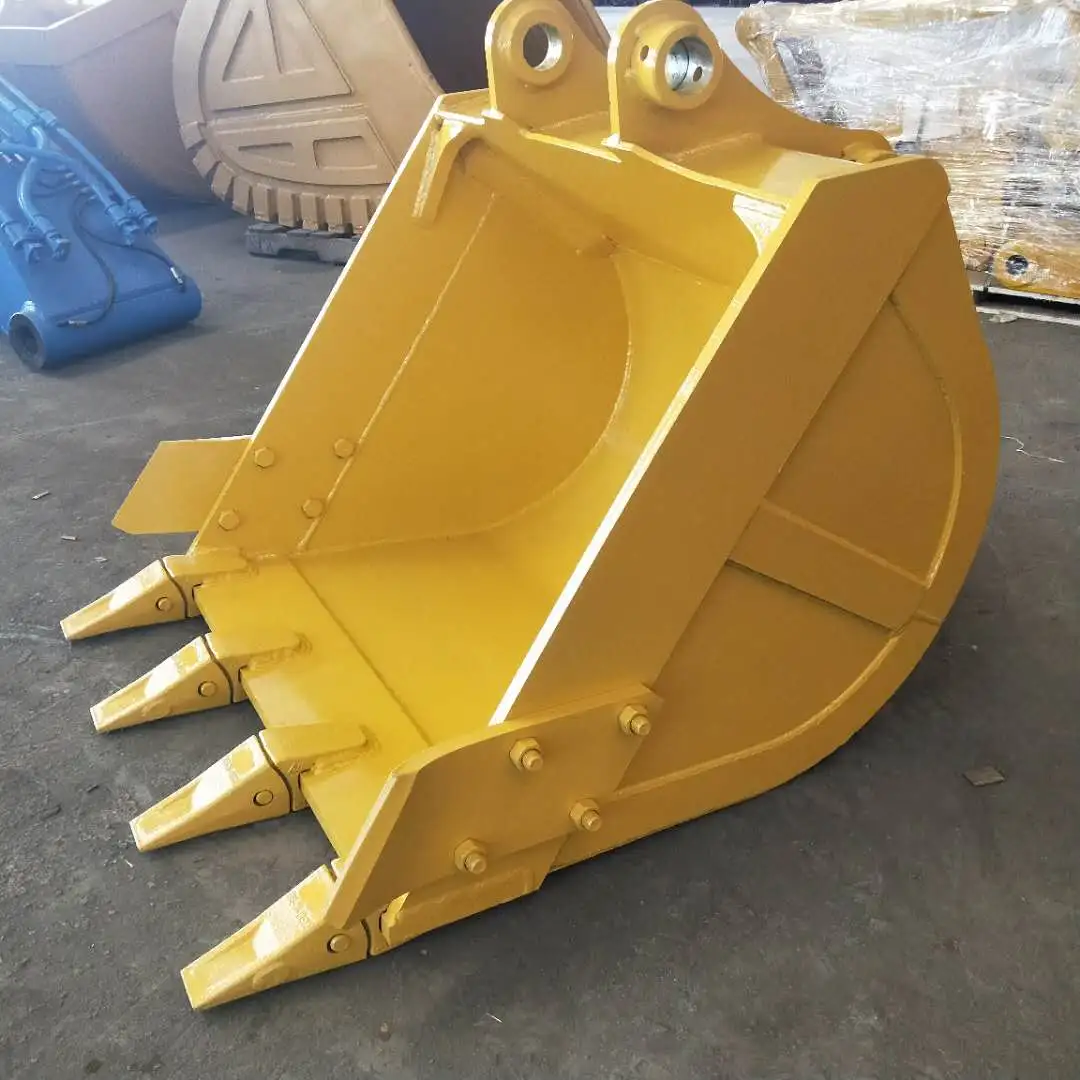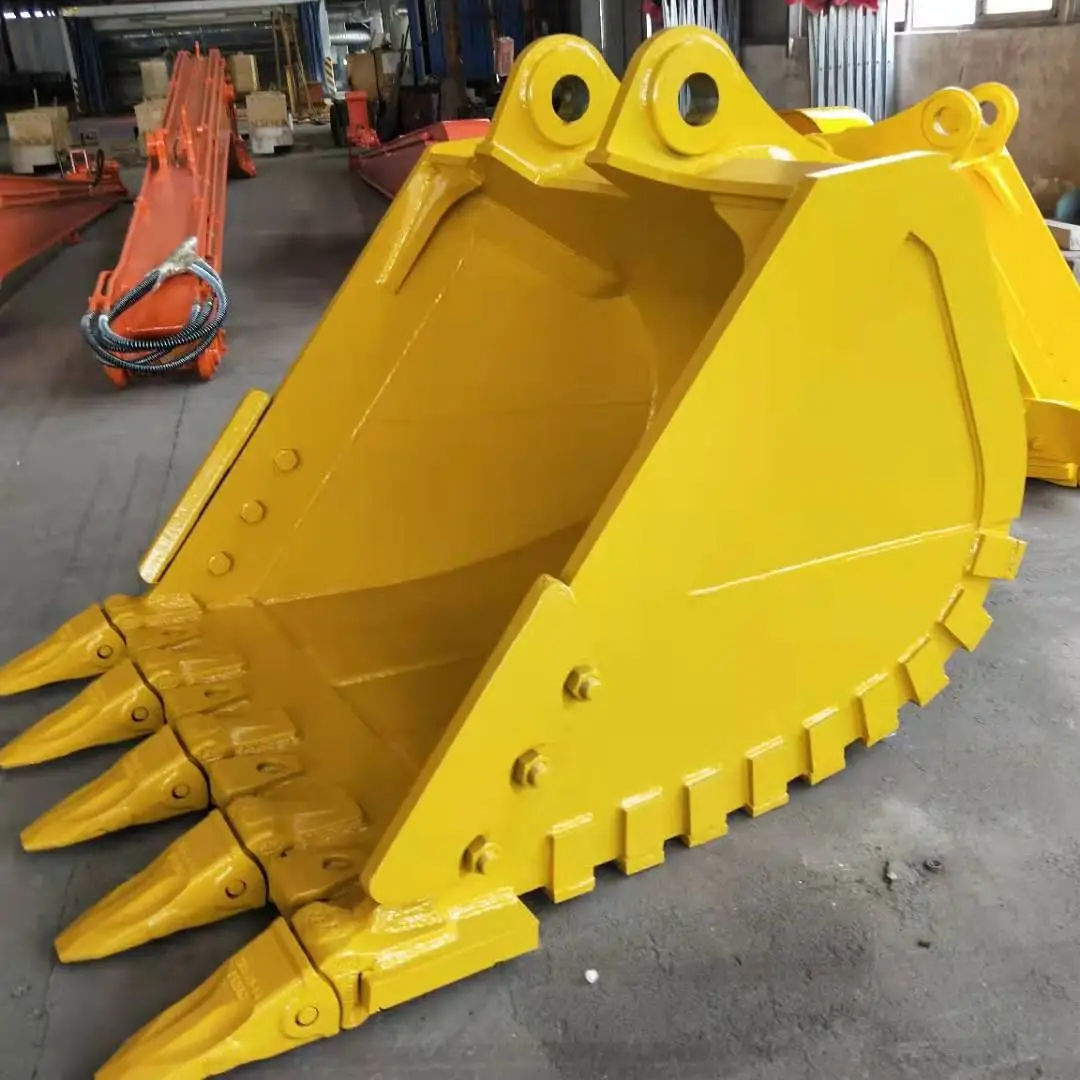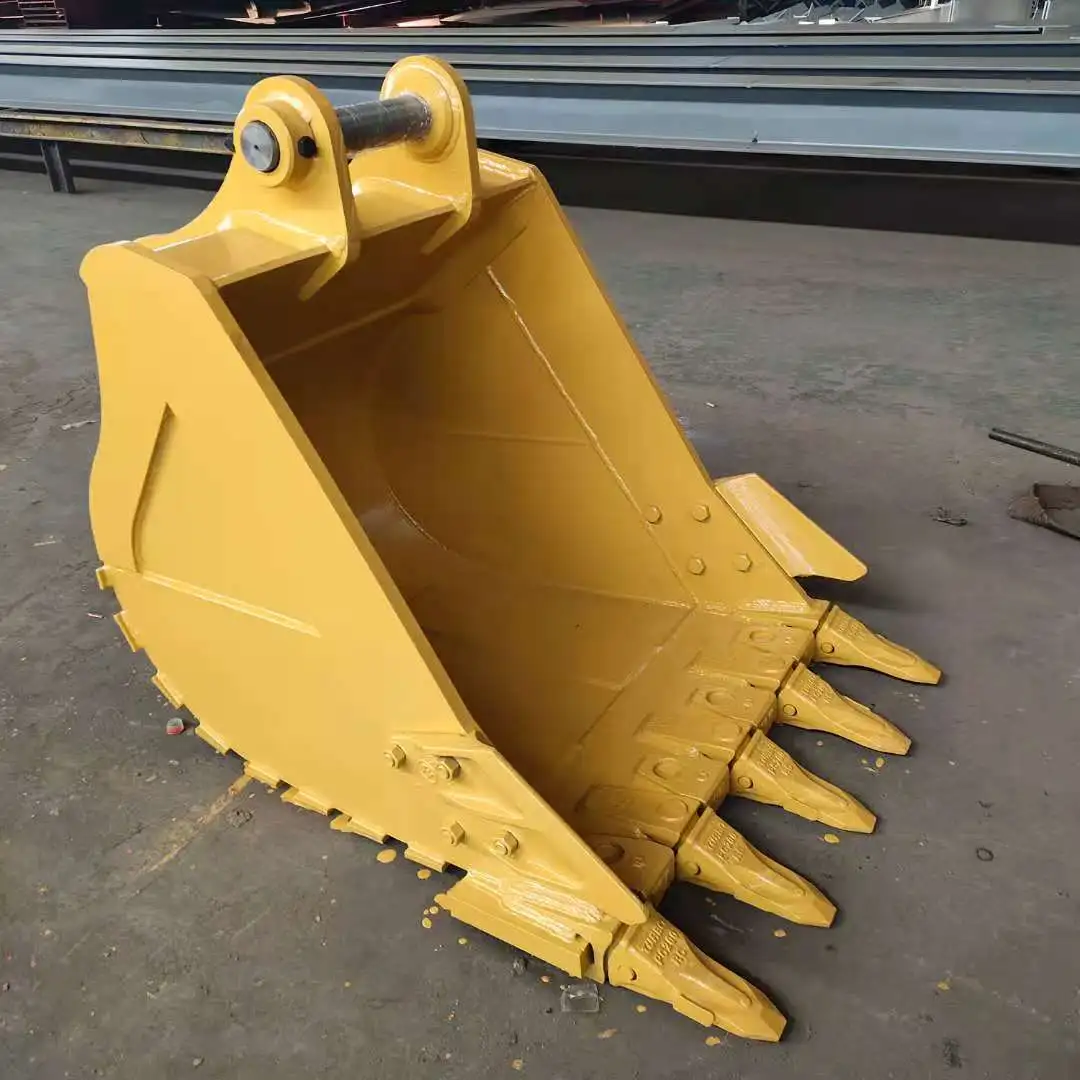Excavator Parts For Sale
Finding reliable excavator parts shouldn't feel like searching for buried treasure. Whether you're managing a construction fleet, overseeing railway maintenance, or running demolition operations, your heavy machinery demands components that deliver unwavering performance under pressure. Quality excavator components serve as the backbone of operational efficiency, directly impacting project timelines, maintenance costs, and overall productivity. An excavator's componentsencompass everything from hydraulic cylinders and bucket assemblies to undercarriage components and attachment systems. The market offers numerous options, from OEM specifications to aftermarket alternatives, each designed to meet specific operational requirements. Smart purchasing decisions focus on balancing cost-effectiveness with reliability, ensuring your equipment maintains peak performance while controlling operational expenses. Modern excavator systems rely on precisely engineered components that work harmoniously to deliver the power, precision, and durability that demanding applications require. Understanding component relationships, quality standards, and compatibility requirements empowers equipment managers to make informed decisions that maximize investment returns.

Compatibility
Machine-Specific Requirements
Compatibility represents the foundation of successful excavator maintenance, as excavator components must integrate seamlessly with existing systems to ensure optimal performance. Each excavator model features unique specifications, mounting configurations, and operational parameters that dictate component selection. Understanding your machine's serial number, model year, and specific variant becomes crucial when sourcing replacement components. Engineering tolerances, bolt patterns, and hydraulic specifications vary significantly between manufacturers and model lines.
Professional equipment managers maintain detailed records of their fleet specifications, including part numbers, installation dates, and performance histories. This documentation streamlines the procurement process while reducing compatibility errors that can result in costly downtime. Modern excavators incorporate sophisticated electronic systems that require compatible sensors, control modules, and wiring harnesses designed specifically for each model configuration.
OEM versus Aftermarket Considerations
Original Equipment Manufacturer components guarantee perfect fitment and maintain warranty compliance, though they often command premium pricing. OEM parts are specifically designed for their intended excavators, guaranteeing perfect compatibility and ensuring seamless integration with optimal performance. Aftermarket alternatives can provide significant cost savings while delivering comparable performance when sourced from reputable manufacturers who adhere to stringent quality standards.
Evaluating aftermarket options requires careful assessment of manufacturing processes, material specifications, and testing protocols. Quality aftermarket suppliers often exceed OEM standards while offering enhanced features or improved durability. However, compatibility verification becomes more critical when selecting non-OEM components, requiring detailed technical specification comparisons.
System Integration Factors
Modern excavators function as integrated systems where individual components must communicate effectively with electronic control units, hydraulic systems, and mechanical assemblies. The hydraulic system consists of pumps, valves, cylinders, and hoses, which work together to generate the force required to move the excavator's parts. Compatibility extends beyond physical dimensions to include pressure ratings, flow characteristics, and electronic signal compatibility.
Advanced excavators feature sophisticated diagnostic systems that monitor component performance and detect potential issues before they result in failures. Replacement parts must maintain these diagnostic capabilities while supporting existing software interfaces and communication protocols. Understanding these integration requirements helps equipment managers avoid compatibility issues that could compromise system functionality.

Quality Assurance
Manufacturing Standards and Certifications
High-quality components support long-term system performance, while cheaper alternatives may seem cost-effective but tend to wear out faster and trigger broader system failures. Quality assurance begins with understanding manufacturing standards that govern excavator component production. ISO certifications, industry-specific quality protocols, and rigorous testing procedures separate premium components from inferior alternatives.
Reputable manufacturers invest heavily in quality control systems that monitor every aspect of the production process, from raw material selection through final inspection. These systems ensure consistent dimensional accuracy, material properties, and performance characteristics across production runs. Advanced metallurgy, precision machining, and sophisticated surface treatments contribute to component longevity and reliability.
Material Selection and Engineering
Premium excavator components utilize high-grade materials specifically chosen for their durability, strength, and resistance to wear, corrosion, and fatigue. Steel alloys, hardened surfaces, and specialized coatings extend component life while maintaining performance under extreme conditions. Engineering analysis considers stress concentrations, fatigue cycles, and environmental factors that affect long-term reliability.
High-quality hydraulic cylinders provide durable, long-lasting assurance with sturdy construction prepared for immense weight and movement requirements. Quality manufacturers employ advanced testing methodologies including finite element analysis, accelerated wear testing, and environmental simulation to validate component performance before market introduction. These rigorous development processes ensure components meet or exceed operational requirements throughout their service life.
Performance Validation and Testing
Comprehensive testing protocols verify component performance under real-world conditions, including extreme temperatures, high-pressure environments, and continuous operation cycles. Quality suppliers maintain extensive testing facilities that simulate actual operating conditions while monitoring performance parameters, wear patterns, and failure modes.
Field testing programs gather performance data from actual excavators operating in diverse environments, providing valuable feedback that drives continuous improvement initiatives. This real-world validation ensures components perform reliably across various applications, from mining operations to urban construction projects. Quality assurance extends beyond initial testing to include ongoing monitoring and improvement programs that enhance component reliability over time.

Critical Components to Consider
Hydraulic System Components
Excavator parts within the hydraulic system represent the heart of machine operation, converting engine power into precise mechanical movement. Hydraulic cylinders control critical functions including boom movement and bucket operation, with pressurized fluid extending rods to open buckets and retracting them to close buckets. These components must withstand enormous pressures while maintaining precise control and leak-free operation throughout their service life.
Hydraulic pumps, valves, and filtration systems work together to maintain system pressure, direct fluid flow, and ensure contamination-free operation. Quality hydraulic components feature advanced sealing systems, precision-machined surfaces, and robust construction that resists wear and maintains performance under demanding conditions. Regular maintenance and quality component selection directly impact system reliability and operational efficiency.
Structural and Attachment Systems
Boom assemblies, dipper arms, and bucket systems represent the primary working tools of excavator operation, requiring components engineered for maximum strength and durability. These structural elements must withstand enormous loads while maintaining precise articulation and control. Quality structural components feature reinforced designs, stress-relief features, and protective coatings that extend service life.
Attachment systems enable excavators to perform specialized tasks through quick-connect mechanisms, auxiliary hydraulic circuits, and mounting hardware designed for specific applications. Excavator parts in this category include specialized buckets, demolition tools, and material handling attachments that expand machine versatility. Proper selection of attachment components ensures compatibility with existing hydraulic systems while providing the performance characteristics required for specific applications.
Undercarriage and Drive Components
Track systems, drive sprockets, and undercarriage components provide the foundation for excavator mobility and stability during operation. These components experience constant wear from ground contact, debris, and operational stresses that demand robust construction and quality materials. Properly matched undercarriage parts simplify installation while ensuring compatibility and reliability that meets or exceeds OEM standards.
Drive motors, reduction gearboxes, and final drive assemblies convert hydraulic power into track movement while providing the torque and speed characteristics required for various applications. Quality undercarriage components feature hardened wear surfaces, sealed bearing systems, and robust construction that withstands the harsh environments typical of excavator operation. Regular inspection and proactive replacement of undercarriage components minimize downtime while maintaining optimal machine performance.
FAQ
①What's the difference between OEM and aftermarket parts?
OEM parts guarantee perfect compatibility and maintain warranty coverage but typically cost more. Quality aftermarket parts can provide similar performance at reduced costs while offering enhanced features or improved durability.
②How do I ensure compatibility when ordering parts?
Always verify your excavator's exact model, serial number, and year before ordering. Cross-reference part numbers and consult with technical specialists to confirm compatibility with your specific machine configuration.
③What warranty should I expect on replacement parts?
Quality suppliers typically offer 12-24 month warranties on major components, with extended coverage available for premium parts. Warranty terms should cover both materials and workmanship under normal operating conditions.
④How can I extend the life of my excavator components?
Regular maintenance, proper lubrication, and following manufacturer specifications significantly extend component life. Quality filtration, clean hydraulic fluid, and timely replacement of wear items prevent premature component failure.
Excavator Parts For Sale
Selecting quality excavator parts requires balancing performance requirements, compatibility considerations, and cost objectives while prioritizing long-term reliability over short-term savings. Whether you need excavator modification equipment like lifting cabs and raised chassis, engineering arms including extended and pile driving configurations, or specialized accessories such as digging buckets and material handlers, choosing the right supplier like TianNuo Machinery makes all the difference. Professional equipment managers understand that quality components reduce total cost of ownership through extended service life, improved reliability, and reduced maintenance requirements.
Smart procurement strategies focus on building relationships with suppliers who understand your specific operational requirements while providing technical support throughout the component lifecycle. Quality excavator components represent investments in operational efficiency, safety, and profitability that deliver returns through improved uptime and reduced maintenance costs. For comprehensive information about quality excavator components and expert technical guidance, contact our specialists at tn@stnd-machinery.com.
References
- Smith, J. (2025). "Hydraulic System Performance in Heavy Construction Equipment." Journal of Construction Equipment Engineering, Vol. 42, pp. 156-172.
- Williams, R. & Chen, L. (2024). "Quality Assurance Standards for Excavator Component Manufacturing." International Heavy Equipment Review, Issue 8, pp. 23-31.
- Thompson, M. (2025). "Compatibility Assessment Protocols for Heavy Equipment Parts Procurement." Construction Management Quarterly, Vol. 15, No. 2, pp. 45-59.
- Anderson, K. (2024). "Lifecycle Cost Analysis of OEM versus Aftermarket Components in Construction Equipment." Equipment Management Today, Vol. 28, pp. 78-84.
- Davis, P. (2025). "Advanced Materials and Manufacturing Processes in Modern Excavator Components." Heavy Equipment Technology Journal, Vol. 19, No. 3, pp. 112-128.
About Author: Arm
Arm is a leading expert in the field of specialized construction and railway maintenance equipment, working at Tiannuo Company.

